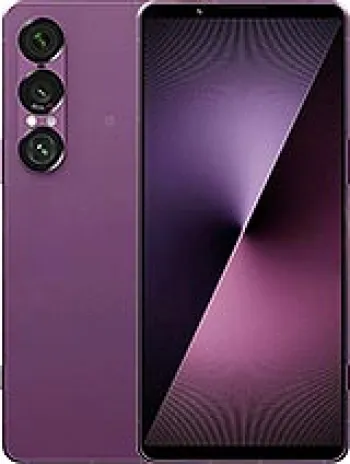
Overview of Sony CMD J6
The Sony CMD J6, announced in 2001, represents one of the early mobile phone models by Sony, designed to provide essential communication capabilities. As a feature phone prevalent of its time, the CMD J6 has since been discontinued but remains a notable device for its innovative features of the era. The device combines basic functionality with some appealing multimedia features that were quite advanced at the time of its release.
Design and Build
The CMD J6 features a compact and lightweight design, with dimensions of 123 x 43 x 20 mm and a weight of 82 grams. This makes it easy to carry and comfortable for one-handed use. The body is structured to house a Mini-SIM card and incorporates a minimalist design that reflects the aesthetic preferences of the early 2000s mobile devices.
Display Features
The device comes with a grayscale graphic display capable of showing four shades. With a resolution of 96 x 92 pixels and the ability to display six lines, it offers a basic interface appropriate for tasks like phonebook management and reading text messages. While rudimentary compared to today’s color screens, the display was adequate for the needs of users at that time.
Network and Connectivity
Supporting GSM technology across 900 and 1800 bands, the CMD J6 operates within the second-generation cellular infrastructure. Unlike modern devices, it does not support GPRS or EDGE, and there's no option for wireless connectivity such as Bluetooth or Wi-Fi. These limitations are indicative of the period before smartphones revolutionized mobile communication.
Memory and Storage
The phone includes a phonebook capacity for up to 500 contacts, a considerable figure for devices at that time. Call records can store information for 10 dialed, 10 received, and 10 missed calls. However, there is no memory card slot for additional storage—typical of the feature phone class where internal storage sufficed for its limited applications.
Battery Life and Performance
Powered by a removable Li-Ion battery with a capacity of 650 mAh, the CMD J6 offers stand-by time of approximately 120 hours and talk time of up to 3 hours. While modest by present standards, these figures ensured that users could rely on their phones throughout a typical day without the need for frequent recharging.
Sound and Alerts
The alerting features available on the CMD J6 include vibration and a selection of monophonic ringtones. However, there is no loudspeaker or 3.5mm audio jack for private listening, which was common in the evolution phase of mobile technology where emphasis was placed mainly on core functionalities.
Messaging and Communication
Text communication on the CMD J6 is facilitated through SMS and email capabilities. The presence of a WAP browser allows for basic internet browsing, with WAP and HTML (MS) forming the cornerstone of early mobile web access. This feature underscores the device’s role in pioneering mobile internet use before widespread smartphone adoption.
Entertainment and Additional Features
For entertainment, the CMD J6 includes four built-in games: Bannanas, PicPuz, MindBlaster, and SandArt. Though simple, these games provided users with leisure options during commutes or downtime. The device also supports alarms and clocks adding to its functionality as a daily tool. Notably absent is Java support, which reflects the device's feature phone status prior to Java becoming a mobile standard for complex applications.
Conclusion
The Sony CMD J6 stands as a testament to the early days of mobile communication, combining essential telecommunication needs with innovative features that were well-received during its time. Despite lacking the advanced capabilities of today’s smartphones, the CMD J6 offered a valuable mobile experience, paving the way for future advancements in the field. Understanding its specifications, strengths, and limitations provides significant insight into the evolution of mobile phones and technology over time.
Key Features of Sony CMD J6
- GSM 900/1800 technology support, ensuring wide compatibility with networks.
- Lightweight and compact design with only 82 g weight, making it easy to carry.
- Mini-SIM support for convenient connectivity.
- Grayscale graphic display with 96 x 92 pixels resolution.
- Phonebook capacity to store up to 500 contacts.
- Basic call records functionality for tracking recent calls (10 dialed, 10 received, 10 missed).
- Vibration and monophonic ringtones for alerts.
- Messaging capabilities include SMS and Email support.
- WAP and HTML browser support for basic web access.
- Includes 4 built-in games for entertainment.
- Clock and alarm functionalities included.
- Removable Li-Ion battery with up to 120 hours stand-by time and 3 hours of talk time.
Disadvantages of Sony CMD J6
- Lack of GPRS and EDGE support for data connectivity.
- Discontinued model, no longer available in the market.
- Grayscale display with only 4 shades and low resolution of 96 x 92 pixels.
- No memory card slot for expandable storage.
- Limited call records storage for only 10 dialed, 10 received, and 10 missed calls.
- No camera available.
- No loudspeaker for hands-free communication.
- No 3.5mm headphone jack support.
- Lack of wireless communication features such as WLAN and Bluetooth.
- No GPS positioning or radio functionality.
- Limited battery life with only 120 hours of standby and 3 hours of talk time.
- Lacks support for modern connectivity options like USB.
- No capability for additional application support as it lacks Java support.
- Only basic SMS and email capabilities with no advanced messaging features.
View Also
More Phones
All Rights Reserved +14266 Phones © Mobilawy 2025

























